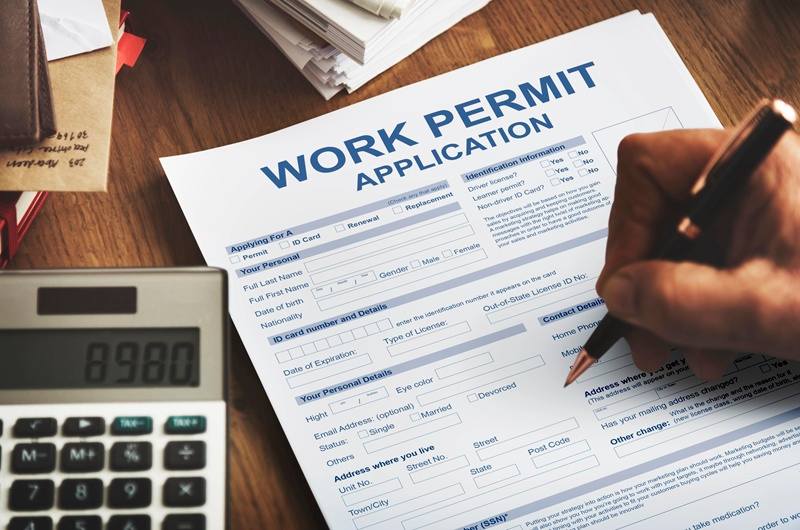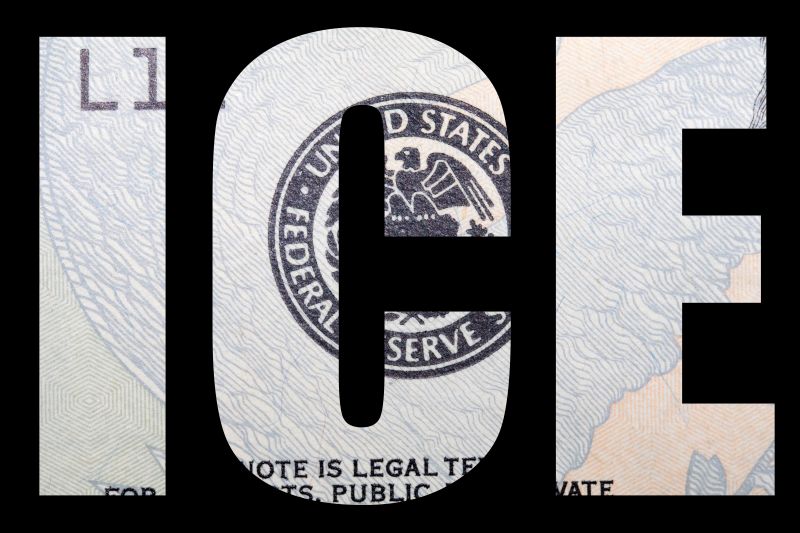
Can I Still Be Deported With A Work Permit In Dallas 2025?
TL;DR:
Yes, it’s possible to be deported even if you have a valid work permit (Employment Authorization Document, or EAD) in Dallas, or anywhere in the U.S. A work permit allows you to work legally, but it’s not the same as permanent legal status. It doesn’t protect you from immigration enforcement if your case is denied, if you’re already in court, or if there are past violations or criminal issues. The risk depends on your full immigration history, and that’s why it’s so important to understand what your permit is based on and what options may still be open.

A work permit helps. But it doesn’t make you untouchable.
Every week, someone walks into our Dallas office and says, “I thought I was safe. I had my work permit.”
But now they’re in removal proceedings. The fear is real. The confusion is common.
Let’s talk about what your work permit (EAD) actually protects and when it can’t stop deportation.
What Your Work Permit Actually Means In 2025
A work permit, called an Employment Authorization Document or EAD, lets you work legally in the United States.
You may have received one because you:
- Applied for Adjustment Of Status
- Filed for asylum
- Are a VAWA self-petitioner
- Have a pending TPS, DACA, or U visa
- Were granted deferred action
But here’s what many people don’t realize:
The EAD only exists because of a pending case. That means if your case ends or gets denied, the protection that comes with your work permit can disappear too.
So Yes, You Can Be Deported With a Valid EAD
Let’s break down the most common ways this happens, not to scare you, but to help you see the full picture.
1. Your immigration case gets denied or closed
If the case behind your work permit is denied, whether it’s asylum, VAWA, a Green Card, or something else, USCIS may cancel your EAD. Worse, they may refer your case to immigration court, where removal becomes a real risk.
2. You’re already in immigration court
Some people have both a work permit and a deportation case. That’s more common than you’d think. But here’s the catch: a judge, not USCIS, has the final say. Even with a valid EAD, if a judge orders removal and no appeal is filed, ICE can act.
3. You have past immigration or criminal issues
Maybe you came back after a prior deportation. Maybe you used a fake name once at the border years ago. Maybe there’s something in your past you’ve been afraid to talk about. These things can trigger ICE enforcement, even if USCIS gave you a work permit later on
What Should I Do If I’m Worried About Being Deported In Dallas?
We get this question a lot. If you’re reading this with that tight feeling in your chest, like you’re one step away from everything falling apart, pause. Breathe. Then focus on what you can control.
Here are four things you can do today:
1. Understand what your work permit is tied to
Was it based on asylum? VAWA? A marriage-based green card? Make sure that case is still active. If you’re not sure, that’s your first sign to get help.
2. Check your immigration case status
Go to USCIS.gov and enter your receipt number. Don’t assume your case is moving, verify it. Quiet denials happen all the time.
3. If you have immigration court, don’t skip a hearing
We can’t stress this enough. Even with a valid EAD, missing court can get you deported automatically. That order doesn’t care about your work card.
4. Talk to a Dallas immigration lawyer before it’s urgent
You don’t have to wait for a crisis to get help. You may qualify for something better, like cancellation of removal, a hardship waiver, or a new strategy based on changes in your life. But we need to see the whole picture to guide you clearly.
What If ICE Shows Up Anyway?
We’ve had clients come to us after being detained, even with a valid work permit in hand. And when they’re calling from inside a detention center, the fear is overwhelming. They’ll say, “I thought I was safe… what happened?”
Here’s what we want you to know:
Yes, ICE can arrest someone with a valid EAD if there’s an old deportation order, a prior border incident, or if they’ve overstayed a visa or missed a court hearing. Sometimes they show up at home. Sometimes it happens during a routine traffic stop. Other times, they act on tips or old records, when the person is actively trying to fix their status.
But here’s the other truth: Many of those same clients are back home now.
Why?
Because they had options we could act on.
Because we had their records ready.
Because they knew what to say and what not to sign.
Because we had filed the right paperwork at the right time.
The goal isn’t to live in fear, it’s to live prepared. When you understand your case, when you’ve explored your relief options, and when you’ve spoken to someone who’s walked others through it, you’re not powerless anymore.
So if you’re in Dallas, have a work permit, but don’t really know what your case is built on or whether it’s strong enough, now is the time to take a closer look. You don’t want to be figuring it out from inside a detention center. You’ve come too far, for too long, to lose ground over something that could’ve been handled ahead of time.
Let’s Talk About Your Immigration Case, Calmly & Privately
You’ve probably had a thousand thoughts running through your head:
- “What if they knock on my door?”
- “What if I made a mistake in the application?”
- “What if I already missed something important?”
This system is complicated and unforgiving, but you don’t have to go through it alone.
At Dallas Immigration Lawyers, we take the time to sit down with you, walk through your case step by step, and answer the hard questions without judgment, without pressure. Just the truth. We’ll look at what your work permit is tied to, what risks you may be carrying, and whether there are stronger protections you haven’t used yet.
Sometimes it’s a small fix. Sometimes it’s a bigger shift, like filing a waiver or reopening an old case. But it starts with a real conversation.
So if you’re in Dallas and feel like you’re carrying the weight of uncertainty every day, let’s change that. Let us take a look. Give yourself that peace of mind.
Schedule a confidential case review today. We’ll meet you with honesty, compassion, and a plan. Because you deserve more than just a work permit. You deserve clarity. And you deserve to feel safe again.
Share this article
Table Of Contents
Latest articles
February 10, 2026
February 10, 2026
February 10, 2026
Categories



